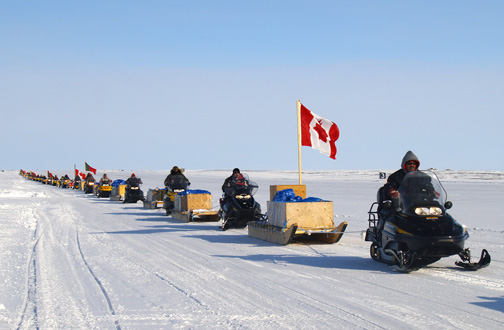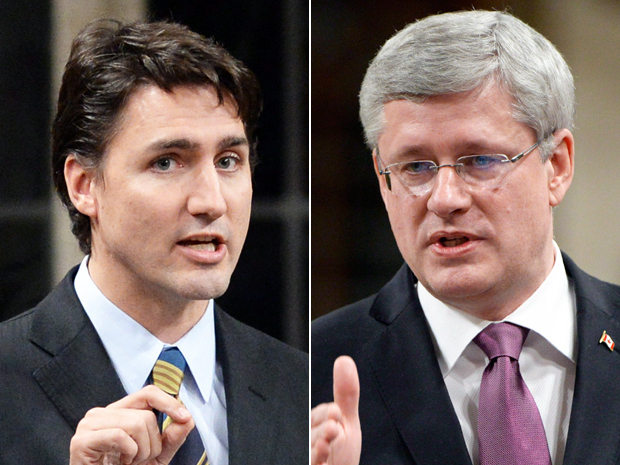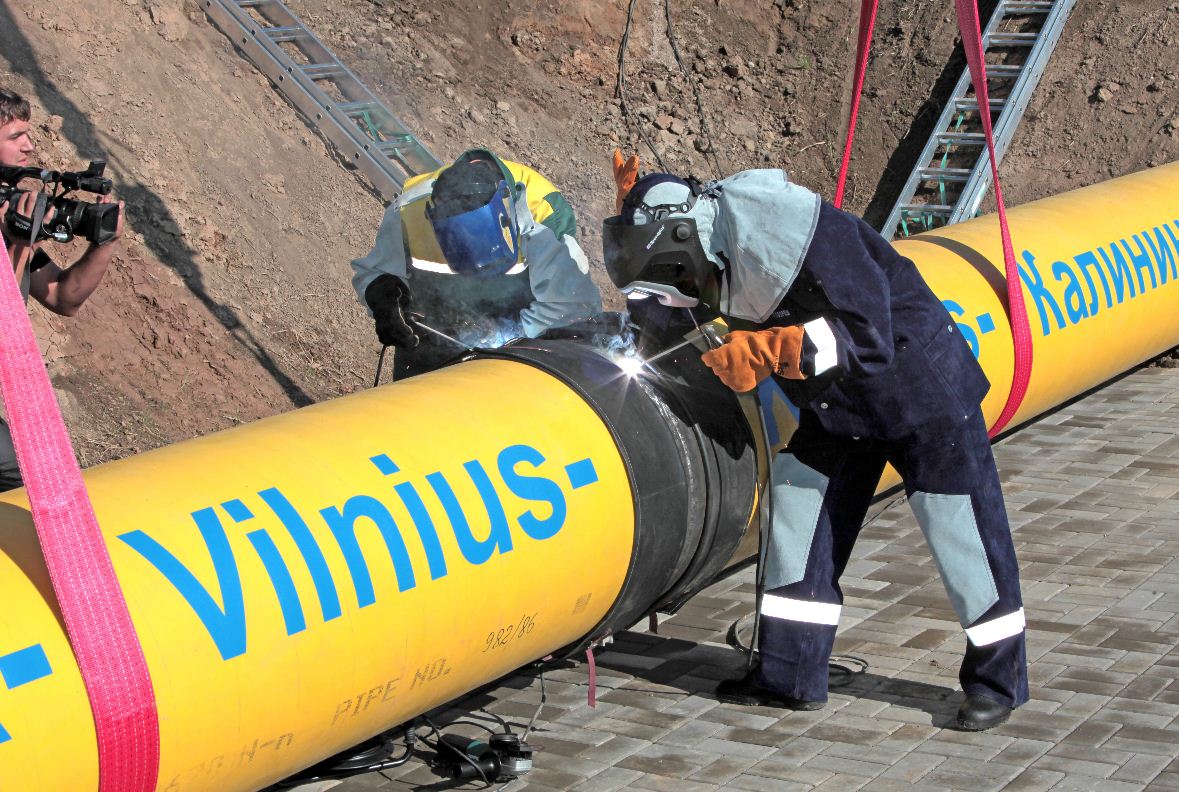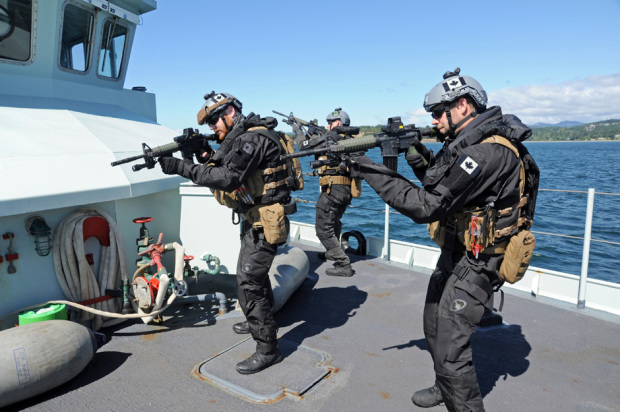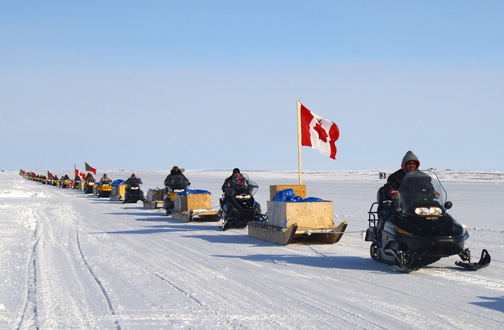
Canada’s territorial north has had a tumultuous history. In the early days of Canada following 1867, the North was basically forgotten. Lacking any agricultural potential which drove the early development of Canada and combined with its inhospitable climate, the North remained largely unsettled. During the Cold War, the North became an area of significant interest for Ottawa, but since the collapse of the Soviet Union, the largest region of Canada has fallen by the wayside in the political narrative.
However, in recent years the Far North and the Arctic region has seen an explosion in its importance as it has emerged as the final resource frontier on Earth. The Arctic is estimated to hold 22% of the world’s undiscovered energy resources. Thus becoming strategically important for Canada’s territorial, economic, and energy security. As climate change makes the Arctic region more accessible, and as the US and Russia among others rush to stake their claim to sovereignty in the Arctic, Canada must constantly re-evaluate its policy position towards control over the Arctic and what steps are being taken to ensure Canadian interests are being protected. Canada has traditionally left the security of its territorial north to its largest ally to the South, but as the recent crisis in Ukraine has highlighted, entrusting one’s territorial integrity exclusively to one’s strategic partners can have disastrous consequences.
Canada’s current military capabilities on the naval front severely limit the degree to which Canada can assert its sovereignty in the Arctic Archipelago. While multiple political initiatives in Ottawa have been pursued to remedy this weakness, they have not fared well. The plan to construct a deep-water port at the North end of Baffin Island has been plagued by unexpected delays and the National Ship Building Procurement Strategy which plans to bring several Arctic icebreaking vessels into service, has suffered from repeated delays and its budget is quickly ballooning out of control. Other investments such as the Stealth Snowmobile Program potentially point to a disconnect between officials in Ottawa and what Canada actually needs to address its challenges in the North. Despite these setbacks, the Canadian Armed Forces (CAF) have used what tools it has available to assert its presence and capacity in the Arctic.
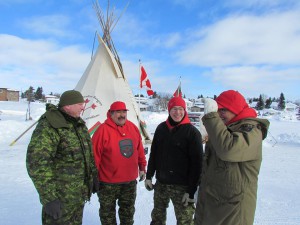
The Canadian Rangers are a component of the Canadian Armed Forces Reserve that patrols the most sparsely settled and isolated areas of Canada. The 1st Canadian Ranger Patrol Group is based out of Yellowknife and is responsible for patrolling all of the northern territories. These lightly-armed mobile units comprise a good share of Canada’s year-round military presence in the Arctic. While these dedicated locals may lack the firepower to contribute in a combat capacity, they are an integral component of Canada’s national security by providing intelligence on unusual activities or sightings, by collecting local data of significance to the Canadian Forces, and by conducting surveillance or sovereignty patrols as required.
One of the largest criticisms of the Canadian Rangers as a military presence in the North is their paltry numbers. One of the biggest challenges of operating in the Arctic is keeping boots on the ground in some of the harshest conditions the planet has to offer. Nevertheless, the small military footprint of the Rangers allows them to benefit their local communities, utilizing their training and resources to provide support in emergencies and other aspects of Northern Life.
To augment its standing force of Rangers, the Canadian Forces hold annual training exercises in the Northern Territories. These operations integrate the Regular Force and Reserve Units with the Canadian Rangers to strengthen Canada’s claim to the Arctic by showcasing its military’s ability to operate in the most remote reaches of Canadian territory. The list of operations conducted by the Canadian Forces in this region is surprisingly long. One such operation, Guerrier Nordique, which took place earlier this year, gave Quebec City based Reservists an opportunity to hone their survival skills in Nunavut for the first time. This exercise saw several different troops carry out four different scenarios around Iqaluit, generally involving transport and reconnaissance in and around Arctic communities.
The main goal of Arctic exercises is to advance the participating units’ capability to work in an environment without roads and limited infrastructure. Having started out training in the sub-arctic regions of Quebec, the goal is to continually move further North thereby incrementally increasing Canada’s military capacity to operate in the Arctic and enforce Arctic sovereignty.
The Canadian Forces have long maintained military installations in the North including Alert, which is the northernmost permanent settlement in the world. Located at the tip of Ellesmere Island, Canadian Forces Station Alert has been operating since the 1950s as a weather station and as a signals intelligence unit. As part of Prime Minister Harper’s Arctic Agenda in 2007, CAF has established an Arctic Training Centre in Resolute Bay, Nunavut, commencing operation on August 15, 2013. Since opening, the centre has already bolstered Canada’s presence. The centre has run Arctic Operations Advisor Courses, which focus on training for cold weather exercises, and has played host to Operation Nunalivut; a Sovereignty operation that has run annually since 2007 all across the Arctic Archipelago.
Canada’s position in the Arctic is slowly strengthening, but there is still much work to be done. While there are solid plans continually being debated politically, time may be running out, as the Russians have been acting, constructing a new fleet of nuclear-powered icebreakers, building new submarines, and organizing special Arctic-based Army brigades. Those developments are troubling indeed when one considers that the Ukraine/Crimea Crisis has established Russia’s willingness to use force in order to satisfy its territorial ambitions. Canada needs to act more quickly than ever and in concert with its NATO allies to secure its sovereign territory north of the 60th parallel.

